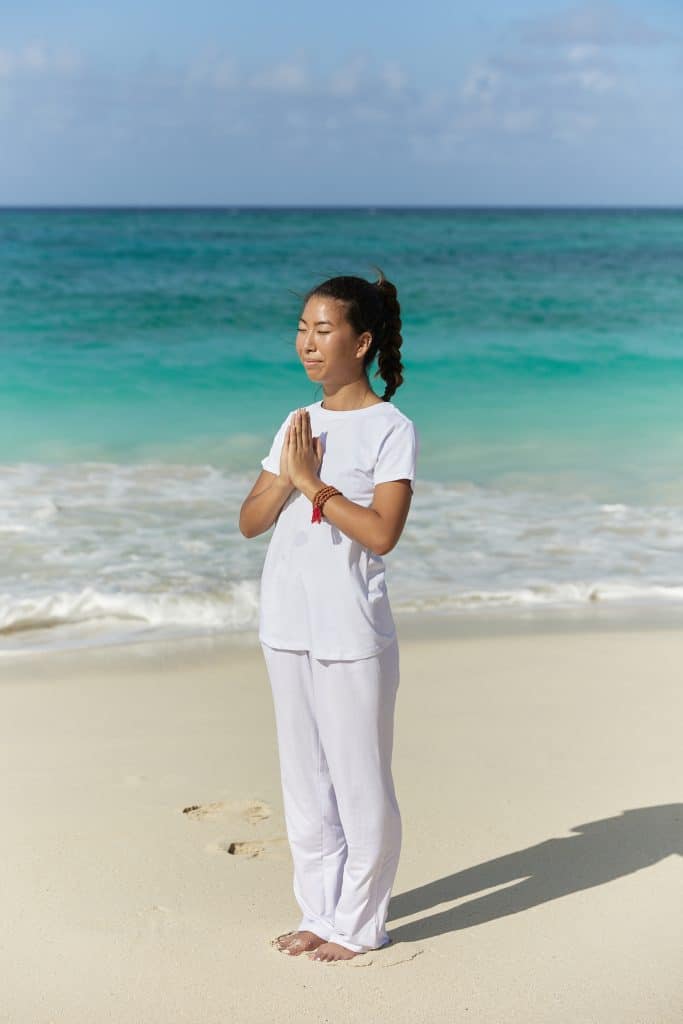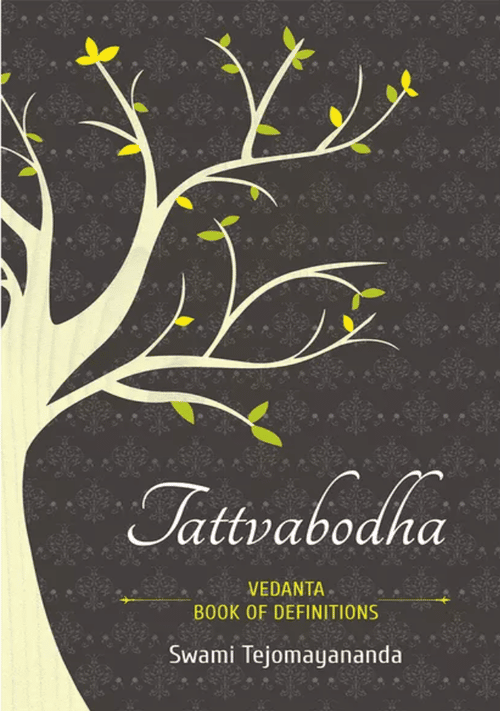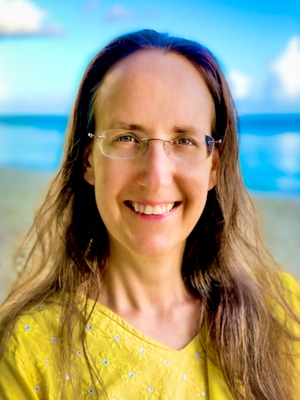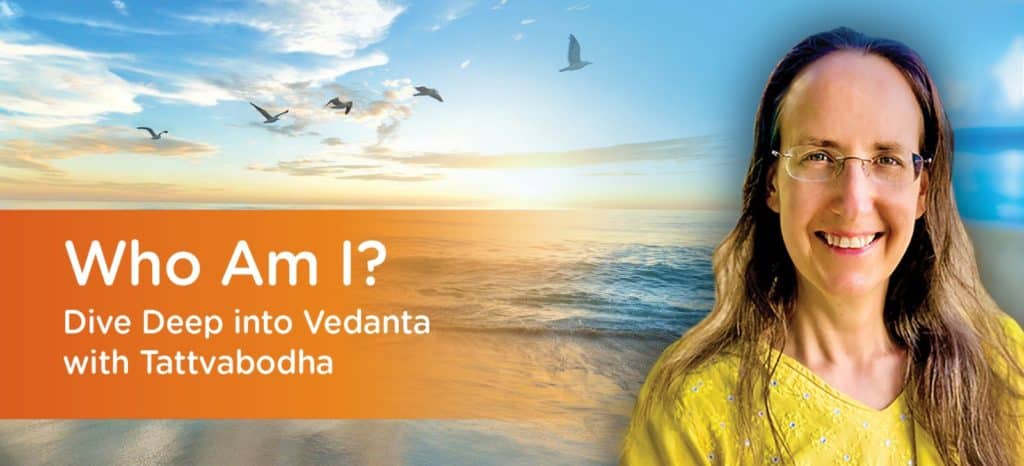- LIVE ONLINE PROGRAM
February 22, 2023 – May 17, 2023
Who Am I?
Dive Deep into Vedanta with Tattvabodha
with Rukmini Chaitanya
Rukmini Chaitanya
12 WEEKLY SESSIONS, Wednesdays, 3:00 – 4:30 pm ET
Course Description:
Join this 12-week course with Rukmini Chaitanya to explore the fundamental introductory Vedanta text, the Tattvabodha written by Adi Shankaracharya, the father of Advaita Vedanta. Receive answers to such questions as Who Am I?, What is true knowledge?, and What is Karma and how to destroy it?
“Brahman is Real. The universe is Unreal (an illusion; an appearance). The individual soul is, in essence, Brahman.”
– Adi Shankaracarya
If you have ever wondered … What is the nature of reality? Who am I? Why am I here? How do I live my best life? … then this course is for you.
Tattvaboddha, meaning “Knowledge of Truth”, is a fundamental text in Vedanta. Vedanta, translating to the end of all knowledge or end of the Vedas, is one of the 6 Hindu philosophies. It reflects the speculations found in the Upanishads, the most recent part of the Vedas (the ancient scriptural text of Hindus). Vedanta concerns itself with meditation, philosophy, consciousness, and ontological knowledge—that which encapsulates such things as existence, being, becoming, and reality.
Join this 12-week course with Rukmini Chaitanya to explore the fundamental introductory Vedanta text, the Tattvabodha written by Adi Shankaracharya, the father of Advaita Vedanta. Receive answers to such questions as What are 4 qualifications or spiritual practices of the aspirant?, What is true knowledge?, Who is the Self?, and What is Karma and how to destroy it?
The Tattvabodha is an introductory text outlining the fundamentals of Vedanta. It uses simple language to deal with the Knowledge (or Reality), the Individual and the World and the relationship between the 3. It also describes the qualifications of a student of Vedanta, outlining the need-to-know concepts and terminology found in all texts of Vedanta. It is composed for the new student who has to understand the technical terms before undertaking the study of actual textbooks and is delivered in the form of a dialogue between a teacher and student in a brief Question and Answer format.


The Tattvabodha was written by Adi Shankaracharya, the great Indian sage and father of Advaita Vedanta. It is a small text presented in succinct question and answer format. Although straightforward, the questions and answers contain most if not all of the fundamental concepts of Vedanta—making the text term-heavy and dense with information.
As such, while the text is an excellent introduction to spiritual seekers and philosophers interested in uncovering the truth about themselves, consciousness, and reality—especially in regards to many of the terms used to describe the concepts unique to Vedanta philosophy—this text is best studied with an experienced teacher that is both learned in the scriptures and practical life application. Rukmini Chaitanya is one such teacher.
Rukmini Chaitanya’s dedication to Vedanta is seen in her decades spent studying with Swami Swaroopananda, the spiritual director of the ashram, and in her many years spent applying Vedanta to her life through her service at the ashram and her own spiritual practice.
What this course covers...
- What are the 4 qualifications or spiritual practices of the aspirant? — Discrimination between the real and the unreal; renunciation of all the fruits of action that lead to enjoyment here and elsewhere; the 6 treasures like self-control; and longing for liberation.
- What is true knowledge? — With in-depth discussions on the nature of Reality and the Self.
- Who is the Self? — Discourse on the 3 bodies (the physical, astral, and causal bodies) and their various parts, including: the organs of knowledge (the 5 senses), the organs of action (the mouth or the organ of speech, the two hands, the two feet, the organ of excretion and the sense organ of reproduction), the mind, intellect, memory, and ego. Also, discourse on the 5 sheaths including: the food sheath, the vital sheath, the mental sheath, the intellectual sheath, and the blissful sheath.
- What, then, is the Atman? — Discussion of the Atman or the inner self and its relationship to the Jiva, the soul, as well as to the 5 vital life-forces or pranks, the 24 cosmic principles and the concepts of Maya (illusion) and Satcitananda (Existence-Knowledge-Bliss Absolute).
- What is Brahman? Maya? What are the 3 qualities of existence: Sattva, Rajas, and Tamas? — With explanations as to how the qualities of a human’s subtle body (the organs of action and knowledge, as well as the mind, intellect, memory, and ego) are born.
- Who are You? — With a breakdown of the answer, "You Are That", including in-depth looks at the definition of You and That.
- What is the Jiva? Who is a Jivanmukta? Who is Isvara or God with attributes? — A look at the individual soul and its process of awakening. Plus, an examination of the final destination in this life—that of the Jivanmukta, or the liberated-while-alive soul.
- What are the fruits of actions or the 3 types of karma? — With prescriptions on how to become liberated from them and a discussion of how karma is stored, distributed, and destroyed.
The specifics of what you'll learn in these 12 weeks...
- What are the fourfold qualifications? Including the following question-and-answer dialogues: What is discrimination between the Eternal and the transient? What is detachment? What are the 6 spiritual treasures of an aspirant? What is mind control? What is sense control? What is mental restraint? What is forbearance? Of what nature is Shraddha (active faith)? What is concentration? What is mumuksutvam (the intense desire for liberation)?
- What is true knowledge? Why the Self alone is True and everything else is false.
- What is the Self? How it is different from the 3 bodies, how it is beyond the 5 sheaths, how it is the witness to all 3 states of existence, and how it is of the nature of Satcitananda, Existence-Knowledge-Bliss Absolute.
- What are the 3 bodies? With an in-depth look at: What is the gross physical body? What is the subtle or astral body? What is the causal or blueprint body?
- What are the organs of knowledge and the organs of action? A discussion of the faculties of the subtle body, including the 5 senses and the 5 organs of action (the mouth or the organ of speech, the two hands, the two feet, the organ of excretion and the sense organ of reproduction).
- What are the 3 states? A discourse on the 3 states of being, that of waking, dreaming, and deep sleep.
- What are the 5 sheaths? Including the following question-and-answer dialogues: What is the food sheath? The vital sheath? The mental sheath? The intellectual sheath? The blissful sheath?
- What, then, is the Atman? — How it is the nature of Satcitananda, Existence-Knowledge-Bliss Absolute, with definitions of Sat (Existence), Cit (Knowledge), and Ananda (Bliss).
- What is Maya? What is Brahman? — Or a discussion on the nature of Reality to help the aspirant cultivate the ability to discriminate between the Real and the Unreal.
Additional Information:
- Offered as 12 weekly sessions on Wednesdays from 3:00 to 4:30 pm ET on the following dates: February 22; March 1, 8, 15, 22, 29; April 5, 12, 19, 26; May 3 & 10th.
- This program is offered live through Zoom webinar with the availability for students to interact through Q&A with the presenter.
- For enrolled students, a video recording will be available after each class in the event you miss a class or would like to review the content.
- It is possible to register and take the course at any time. You can catch up on any classes you miss with the recordings.
Requirements and Recommendations:
- No experience necessary. This program is open to beginners as well as advanced practitioners.
- Viewing Device: Desktop or laptop computer will provide the best experience, although you can also connect via a tablet or smartphone.
- Internet connection: High-speed broadband wired or wireless is best.
- Video: Download Zoom to your computer, or install the Zoom app to your device. For interactive group sessions, a webcam or integrated camera will allow others to feel more connected with you.
- Audio: Headphone speakers are recommended. If you wish to participate vocally, a headset with a microphone will be ideal.
Course Includes:
- 24 hours of on-demand video.
- 10 live 90 minute sessions.
- Live and recorded guided practices.
- Feedback and personal guidance on student’s home practices.
- Availability to ask questions about the studies and practices between classes.
- Course Manual.




Rukmini Chaitanya
Rukmini Chaitanya is a senior staff member of the Sivananda Ashram Yoga Retreat Bahamas, and the personal assistant to Swami Swaroopananda, the Acharya, or spiritual director of the Ashram. She regularly teaches the Bhagavad Gita during the Sivananda Yoga Teacher training as well as other courses on the Bhagavad Gita, Vedanta, positive thinking, meditation, and yoga philosophy.
Rukmini Chaitanya is known for her enthusiastic and inspiring teaching style as well as for her devotion to the lineage and the scriptures. She is dedicated to each of her students and has an innate desire to share knowledge with them. She brings a great deal of clarity to every topic and is highly appreciated for her capacity to unfold complicated topics and present them in a coherent and pure way.
